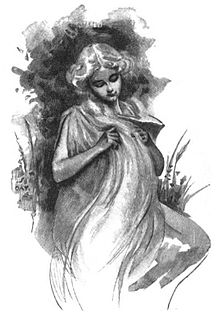Sif

In Norse mythology, Sif (Old Norse: [siv]) is a golden-haired goddess associated with earth. Sif is attested in the Poetic Edda, compiled in the 13th century from earlier traditional sources, and the Prose Edda, written in the 13th century by Snorri Sturluson, and in the poetry of skalds. In both the Poetic Edda and the Prose Edda, she is known for her golden hair and is married to the thunder god Thor.
The Prose Edda recounts that Sif once had her hair shorn by Loki, and that Thor forced Loki to have a golden headpiece made for Sif, resulting in not only Sif's golden tresses but also five other objects for other gods. Sif is also named in the Prose Edda as the mother of Thrud by Thor and of Ullr.
Scholars have proposed that Sif's hair may represent fields of golden wheat, that she may be associated with fertility, family, wedlock and/or that she is connected to rowan, and that there may be an allusion to her role or possibly her name in the Old English poem Beowulf.
Etymology[]
The name Sif is the singular form of the plural Old Norse word sifjar. Sifjar only appears in singular form when referring to the goddess as a proper noun. Sifjar is cognate to the Old English sibb and modern English sib (meaning "affinity, connection, by marriage") and in other Germanic languages: Gothic WIKI